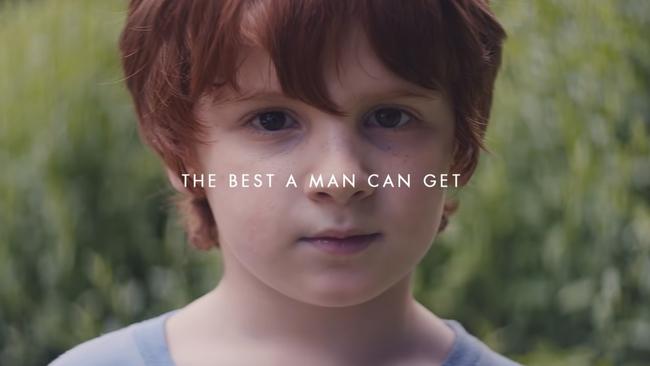Gillette cut into loyal customer base with toxic masculinity campaign

It was the ad that ensured we started 2019 with controversy and debate. Back in January Gillette launched a bold new advertising campaign aimed squarely at addressing the issue of toxic masculinity.
Titled “The Best a Man Can Be”, the ad presented Gillette consumers with a 90-second treatise on what was wrong with the culture of masculinity. It went on to suggest a different approach for the future.
The ad acknowledged some men were changing for the better, but also noted that “some is not enough”. A long line of men operating barbecues chanted “boys will be boys” while bullying and sexism was shown in all its horrendous glory. The ad concluded with the faces of young boys who would become the men of tomorrow staring impassively at the men of today. Would they improve? Could they?
The critical response to the ad was most positive. Advertising executive Jane Caro concluded this was “what advertising must do”.
MORE: The Mocker - The cost of Gillette’s wokeness revealed: a non-cash writedown of $12 billion | Mark Ritson - Gillette: how vexed a man can get
Clementine Ford, writing in the Sydney Morning Herald, concluded that “whichever way you slice it, Gillette has achieved its goal”.
Anne Miles, the managing director of advertising firm International Creative Services, rated the ad very highly.
But while proponents of the campaign praised its message, their perspective was missing someone important; the consumer. While the press was filled with positive reviews, the data from the actual market was heading in a different direction.
The small proportion of positive comments online were dwarfed by many more from Gillette consumers who objected to being hectored to like this and who swore they would switch brand as a result.
The response from the ads’ supporters was to suggest the only people who could find it insulting were those engaged in misogyny and the kind of toxic masculinity the campaign was trying to eliminate.
But those critics missed the central issue with the campaign and the key point of marketing: you are not the consumer. Gillette has, or rather had, a very loyal market in the male wet shave category. The data shows this group is not only male but also skews notably more conservative in their mindset and beliefs.
That does not mean they are guilty of toxic masculinity but it does mean if you spend your ad budget telling these people that men need to improve and mend their ways you are likely, not despite but because of your dominant market share, to ultimately regret it.
If the advertising experts who were quick to resonate with the campaign but slow to recognise they weren’t representative of the target market had paused to consider this point they might have seen the folly in Gillette’s approach.
That folly became apparent this month with the news that P&G, the owners of Gillette, had written the brand’s value down by some $12 billion ($US8bn).
To be fair, the reduction is based on a 15-year-old valuation conducted when men shaved more and Gillette had a stranglehold over the market.
But you can be sure that a slice of the reduction comes from a mistaken ad campaign and the opportunity cost of spending your money pushing political correctness at the expense of brand benefits.
Gillette took its marketing budget and used it to make a lot of (non-shaving) cultural critics very happy and give millions of its loyal customers a potent opportunity to reconsider their brand and alter their buying behaviour.
While the writedown on Gillette cannot be used as direct evidence of January’s failed ad campaign, the company’s glaring change in direction evident in its just-launched new advertising surely can.

Gone is the accusatory copy and critical messaging. In its place we now have Ben Ziekenheiner — a big, brave Aussie firefighter who looks like he could extinguish an inferno just by looking at it.
Big Ben gazes deeply in the mirror and explains that it is mandatory for Australian fire fighters to be clean shaven on the job. His daughter (note, not his son), gazes up at him with unbridled admiration. She hands him a picture she has drawn of him and he reaches down and takes her in his XXL arms and gives her a fatherly squeeze. She watches as he heads out the door to the sound of tinkling pianos.
It’s an ad straight out of the 1980s. As significant for what it does not say as what it does. And it shows a company attempting a 180 degree turn on their previous work. But it’s also a missed opportunity for Gillette.
This is a century-old brand. One that must change with the times and one that has to keep showing an aspirational and attractive vision of positive masculinity. When I was a teenager formulating my brand preferences it was men getting into space shuttles and hitting home runs. The dreams of teenage boys have changed but the need for Gillette to speak to them, while reaffirming the purchases of millions of loyal consumers, remains.
Somewhere between the cliched firefighter of the 80s and the woke message of an addled, purpose-driven marketing department is the right path for Gillette.

There is a way to move the vision of positive masculinity forward and sell razors doing it.
But one gets the distinct sense that Gillette, once that most mighty of marketing operations, has lost its way and lost its confidence in the process.
The big question now facing the company is whether their once loyal customer base will return to the brand as images of firemen, and the other traditional masculine icons that are surely being lined up, take hold. The initial response to the new campaign suggests a tricky path ahead.
As one former Gillette consumer tweeted last week: “Hey guys! Come back! You know that whole thing where we called you sexist pigs and your sons rapists in training? We were kidding! Now buy our razors again. Please.”


